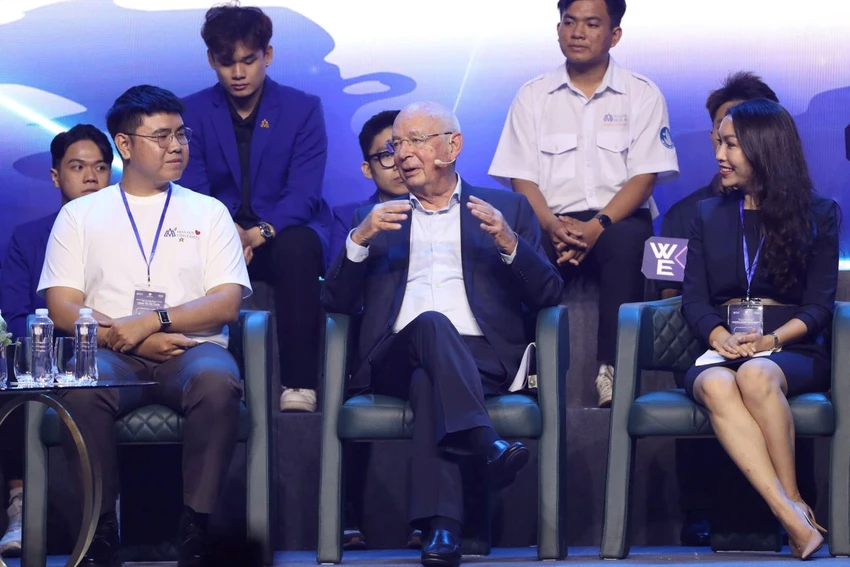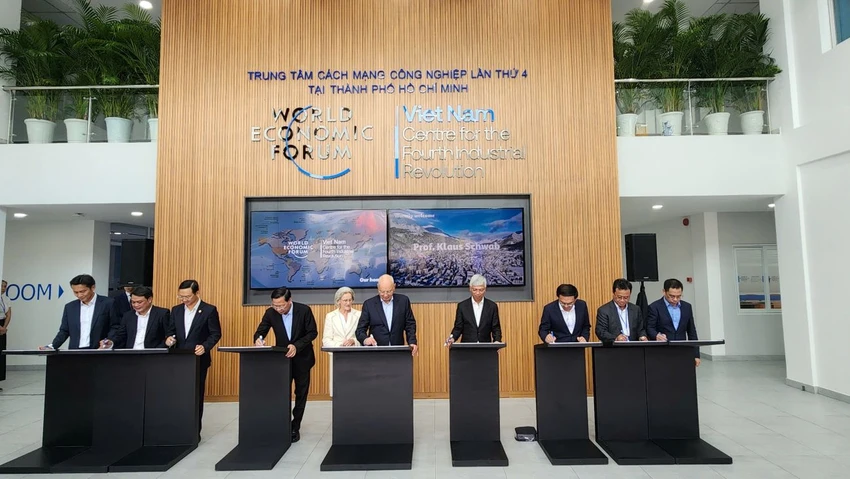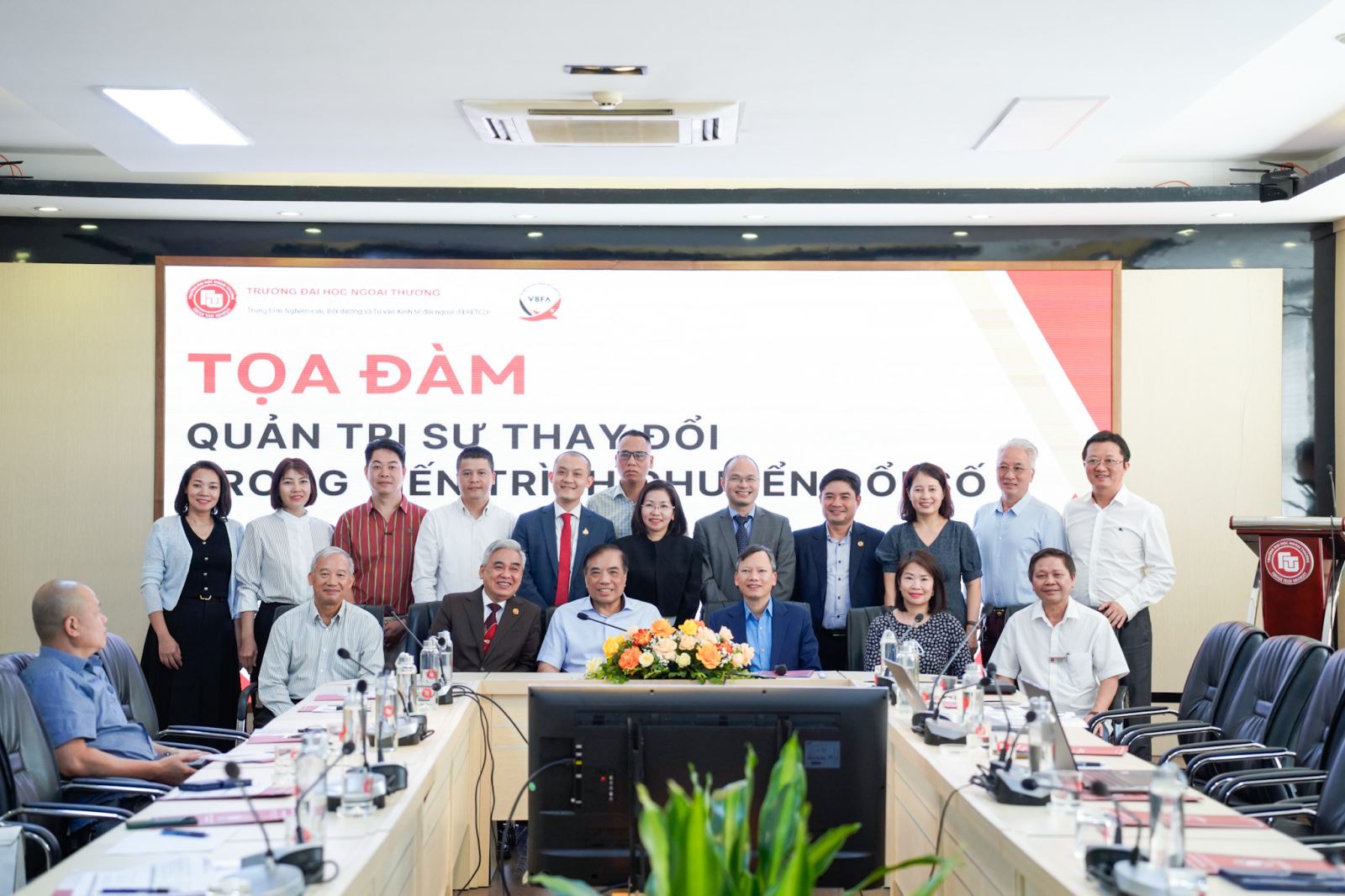Professor Klaus Schwab, Chairman of the World Economic Forum (WEF), believes that in the coming decades, Vietnam will experience robust economic growth and play a significant role in the global economy.
On October 6, the Ho Chi Minh City Department of Foreign Affairs and Hoa Sen University co-hosted an inspirational talk for young people with the theme: “Knowledge Economy – The Foundation for a Prosperous Future and Youth Action.”
During the talk, Professor Klaus Schwab shared that in the next 20-30 years, Vietnam will become one of the top 40 economies in the world.
The main driving force behind this development will be continuous innovation and the entrepreneurial spirit of the younger generation. In Vietnam, especially in Ho Chi Minh City, there is already a passionate community of young leaders ready to make groundbreaking advancements.

“The world is transitioning from the industrial age to the smart age,” Schwab explained, “where the combination of physical, digital, and biological fields, driven by advancements in artificial intelligence (AI), will revolutionize how we live, work, and communicate.
In this smart age, technology provides powerful tools to address global challenges. However, to fully harness this potential, we need visionary leaders with deep system-wide understanding and the ability to turn creative ideas into concrete actions.”
“Effective leadership will be the key factor in navigating and addressing the complex challenges of this era”, Schwab emphasized.
At the event, Phan Van Mai, Chairman of the Ho Chi Minh City People’s Committee, noted that the world is changing rapidly, with globalization and the Fourth Industrial Revolution intensifying. These shifts require countries and localities to continuously develop, cooperate, and advance in line with global trends.
Ho Chi Minh City is at the forefront of innovation and is actively transitioning its growth model towards a green economy, a digital economy, and sustainable development.

“The shift from a traditional economy to a knowledge economy requires comprehensive economic restructuring, focusing on breakthroughs in three strategic pillars: infrastructure, institutions, and human resources. This process must be not only simultaneous but also harmonious and rational. Among these pillars, human resources will be the main goal and driving force to promote the development of a knowledge economy.
To turn potential into reality, we need breakthrough solutions in education and training that are closely tied to the practical needs of the city’s economy. We require a young generation equipped not only with specialized knowledge but also with creativity, critical thinking skills, and the ability to quickly adapt to new technologies,” Mai emphasized.
Source: Phuong Minh from Ho Chi Minh City Law Newspaper.






